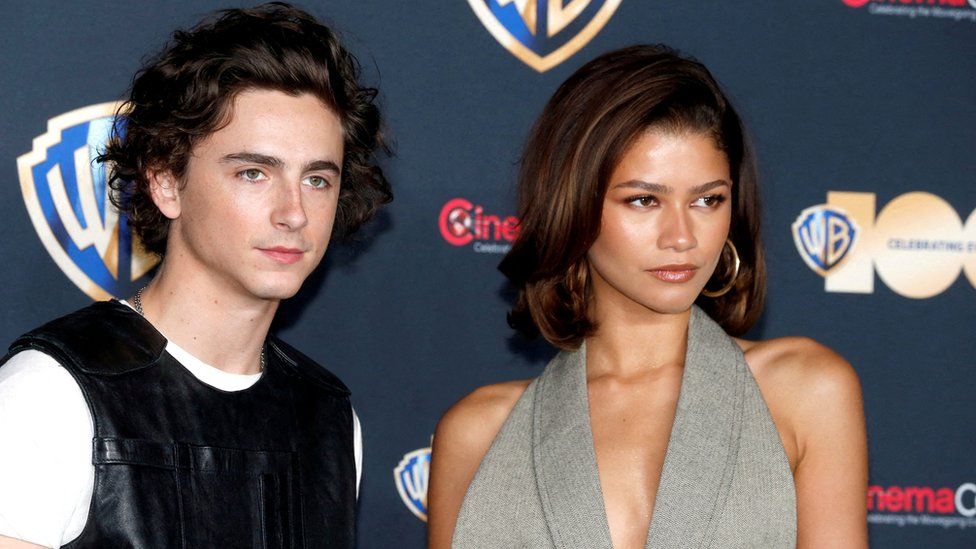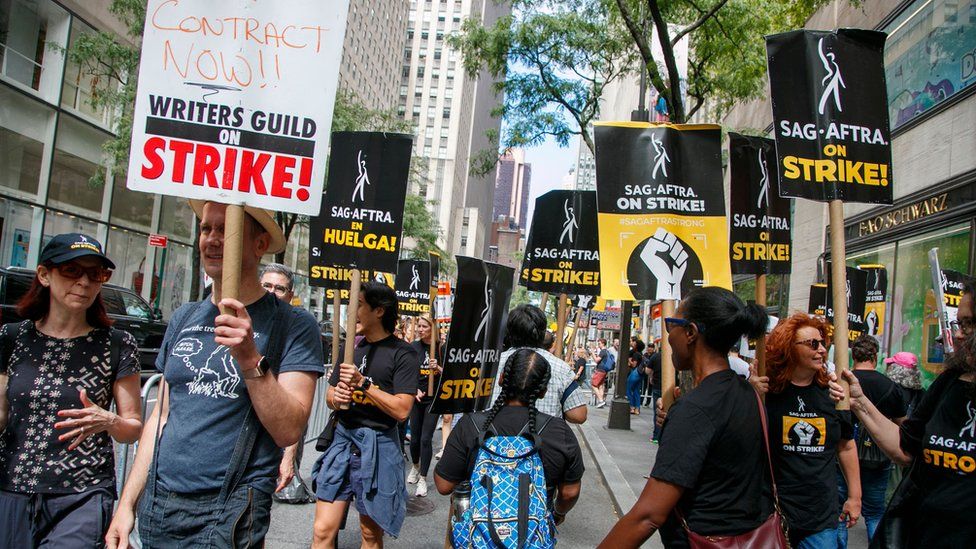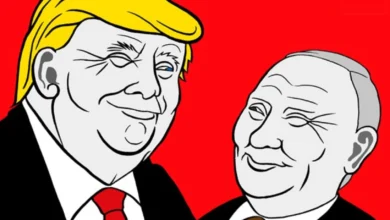Dune: Part Two” Delayed Until 2024 Due to Ongoing Hollywood Strikes

Dune: Part Two” Delayed Until 2024 Due to Ongoing Hollywood Strikes
The much-awaited sequel, “Dune: Part Two,” has faced a setback and won’t be arriving until 2024, delivering a blow to sci-fi fans. The news, which was revealed by Warner Bros. on Thursday, has dashed the excitement that had been building for the follow-up to the 2021 sci-fi hit, “Dune,” directed by Denis Villeneuve.
Initially scheduled to hit theaters on November 3rd this year, the continuation of the “Dune” story featuring Timothée Chalamet and Zendaya has been delayed due to the ongoing SAG-AFTRA strike. Warner Bros. informed CNN about this change through an email, expressing the need to adjust plans due to the current situation.
The labor disagreement causing trouble in Hollywood is the SAG-AFTRA strike. This situation has impacted the industry, including high-profile projects like “Dune: Part Two,” showing that even big productions are not immune to its effects.

The negotiations at the heart of this strike are important not only for the entertainment field but also for the larger community that enjoys its content. Some of the main issues causing the deadlock include getting fair payment after the initial work and having a clearer view of how many people watch on streaming platforms. Another critical concern is safeguarding against the growing presence of artificial intelligence in the industry.
One of the main sticking points is how actors are paid after their work is shown or streamed. This kind of payment is called “residual payments.” With the rise of streaming platforms, it has become necessary to rethink how actors are compensated for their ongoing contributions to the creative world.
Another big topic that has led to the strike is the need for more information about how many people are watching on streaming platforms. With traditional ways of measuring success changing, and streaming services becoming more popular, actors and creators want to know how many people are enjoying their work. This information can have a big impact on how artists make decisions about their careers and future projects, making it an important part of the strike’s goals.

A future worry for Hollywood is the growing role of artificial intelligence (AI) in creative processes. The strike’s call for better protections shows that the industry recognizes the possible impact of AI. As AI-generated content becomes more of a reality, actors and creators want rules in place to make sure human creativity isn’t replaced by machines.
It’s worth mentioning that the writers’ strike was already affecting Hollywood since May. This combination of strikes has brought production to a halt, affecting various parts of the entertainment sector.
The writers’ strike is similar to the actors’ strike, as it’s about fair payment and protection in a time when people are consuming content in new ways. This shows that different parts of the industry are uniting to face the challenges posed by a changing landscape.
Fans of “Dune: Part Two” will now need to wait until 2024 for the movie’s release. The determination of the creative community, both in front of and behind the cameras, is clear as they work towards a fairer entertainment industry. These strikes highlight an important moment for the industry, one that will shape storytelling, creativity, and technology for years to come. While delays and disruptions are frustrating, they’re part of a bigger effort to create a more open, clear, and strong entertainment industry that can handle the challenges of a changing world.

The delay of “Dune: Part Two” serves as a reminder of the complex workings within Hollywood’s entertainment machinery. As fans eagerly anticipate the continuation of the “Dune” saga, the SAG-AFTRA strike sheds light on the intricate web of negotiations that occur behind the scenes. The strike’s demands resonate beyond the glamour of red carpets and silver screens, revealing the need for fair compensation, transparent data, and safeguards against the encroachment of cutting-edge technologies.
In the midst of these industry-wide disruptions, the unity among actors, writers, and various entertainment professionals becomes evident. The joint efforts of these creatives highlight a collective commitment to shaping the industry’s future. Beyond the setbacks faced by “Dune: Part Two,” these strikes represent a crucial juncture where the industry must grapple with the evolving landscape of content consumption, distribution, and the role of automation.
Ultimately, the postponed release of “Dune: Part Two” serves as a microcosm of a larger struggle for balance and equity in Hollywood. While fans may experience disappointment due to the delay, the broader message is one of industry-wide transformation.
As negotiations continue and conversations about the role of technology, compensation, and transparency take center stage, the hope is that these challenges will give rise to a revitalized entertainment landscape that respects the contributions of all its stakeholders and adapts to the demands of a new era.




